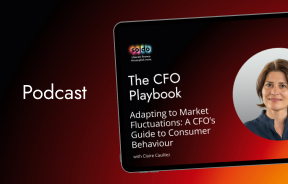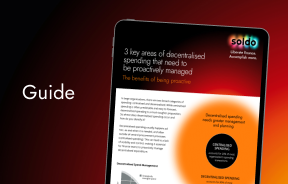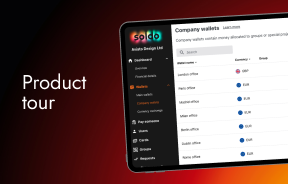Since the start of the pandemic, the line between personal and professional life has become increasingly blurred. To recruit and retain the best talent, businesses need to commit to and actively promote employee well-being.
At Awin Global, well-being is central to the company’s culture. It’s the foundation of Awin’s ‘Vision 2023’ – an initiative to reimagine what working life at the affiliate network could look like.
CFO Virpy Richter joined us on The CFO Playbook where she shared with us what she and others at Awin are doing to ensure well-being stays front and centre.
Below are a few of her tips to help you create a happier workplace.
1. Design policies that promote freedom and flexibility
Aimed at giving employees more freedom in how they choose to work, Awin’s ‘Vision 2023’ includes three elements:
- A ‘work wherever, whenever’ policy
- A redesigned office space
- A four-day work week
With the pandemic normalising remote work, Awin’s ‘work wherever, whenever’ policy allows its employees to work at any of the 17 countries it has offices in. The management team was of the opinion that as long as the work gets done, they don’t care where people are located. So, they decided to let employees decide for themselves how they want to work.
The company has also redesigned its office spaces, to acknowledge the fact that with homeworking being the new normal, people come into the office mainly to collaborate.
According to Virpy: ‘If people are coming back to the office, they are not coming back to sit at their desk on their own, but to attend a team meeting or creative workshop. So you need to have offices that respond to that’.
The final phase of Awin’s policy changes was the four-day work week, to help people manage the additional challenges they’re facing, such as homeschooling or caring for family members.
The result has been a lift in staff morale, and in some cases even increased productivity:
‘We brought in the four-day week to give people more freedom. People are loving having one day off to do whatever they feel like. That can be family, business, sport, training, whatever they want. As a CFO I look at the numbers. Everything that we’ve seen so far is pointing in the right direction. We see the same or even increased productivity’.
To support the four-day week, Awin had to look at how automation can help reduce demands on team members’ time, which is why Virpy’s next tip is so important:
2. Use technology to free up your team’s time – and creativity
In addition to helping your team work more efficiently, Virpy believes automation can also help them be more fulfilled in their jobs:
‘As a human being it’s great if you can build something new or add value, instead of being kept to some repetitive task. So if you have smarter ways of working and can spend your time delivering value to your business or customers, it’s much more fulfilling.’
Virpy’s finance team rely on a number of digital tools which streamline processes and help them deliver more strategic value to the business.
For instance, Virpy began using Asana to manage projects last summer, which has made cross-departmental collaboration much easier: ‘Instead of having a lot of email ping pong and Excel files shared, you can just put all the clear tasks together, add in deadlines, attach files, et cetera.’
Other tools the finance team relies on include LucaNet for financial consolidation and Tableau for budgeting.
While technology can free up your team’s time to do higher value work, they need to have good relationships with the rest of the business to have maximum impact. Her third tip can help you achieve that:
3. Build relationships based on trust
As the safekeepers of a company’s numbers, finance teams have the opportunity to provide more transparency and guidance on performance to other areas of the business. However, as such conversations can often be quite stressful, it’s easy for finance to be viewed as an outsider or policeman.
Virpy says: ‘If you have a relationship built on trust you can say “Hey, I’m flagging that because I want to improve the situation, not because I want to blame you”. And that’s a big difference’.
To help her team develop themselves as business partners across the company, she encourages them to look at what the unique challenges individual stakeholders are facing based on their function or geography.
By understanding the distinct problems and opportunities that different people deal with around the business, you can work together to come up with solutions.
Building a people-centric business
Improving employee well-being will increase satisfaction, helping you attract and hang on to the best talent.
Using Virpy’s experience at Awin as an example, think about which policies and processes you can change in your business to put people first.
Listen to the full conversation
Hear the full interview with Virpy Richter, and catch up on the latest episodes at CFOPlaybook.fm



























